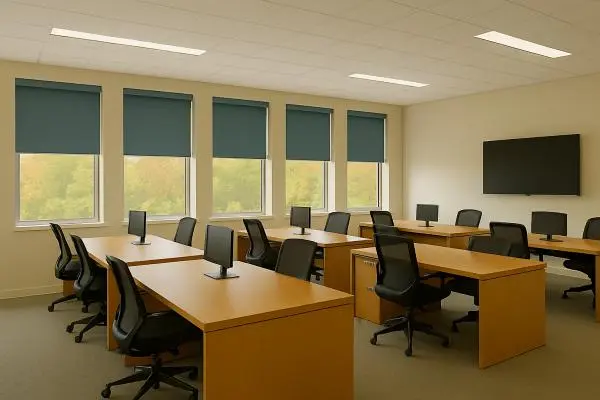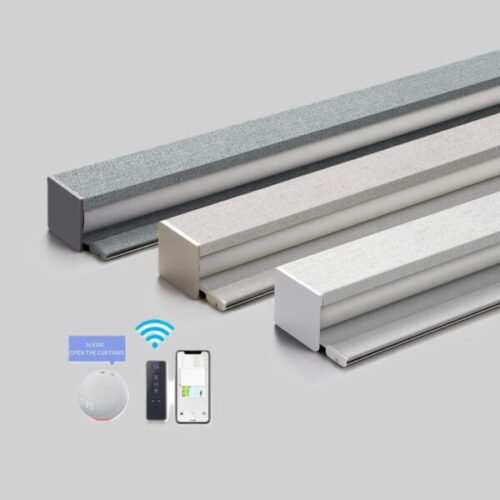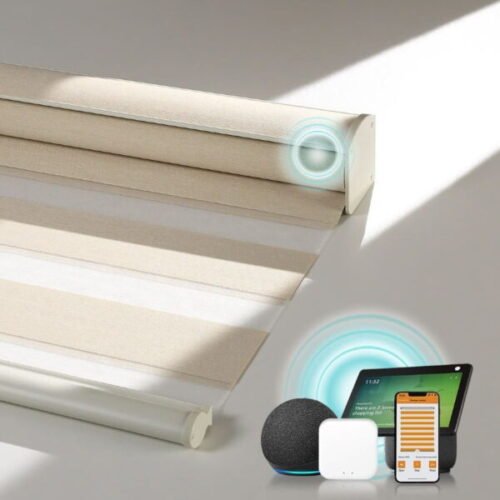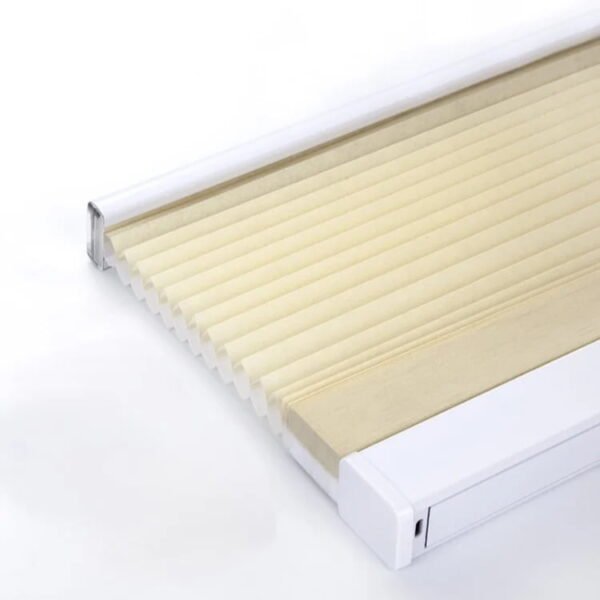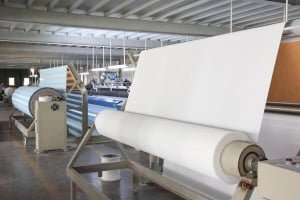Choosing the right company to make commercial roller blinds is very important. It affects how well your project goes, how long the blinds last, and how much it costs.
To choose the right commercial roller blinds manufacturer, B2B buyers must find a company with a strong track record, robust production, and strict quality control. Shadesmart offers deep industry expertise, state-of-the-art manufacturing, and dedicated project management, ensuring precise, high-performance, and reliable solutions for every commercial project.
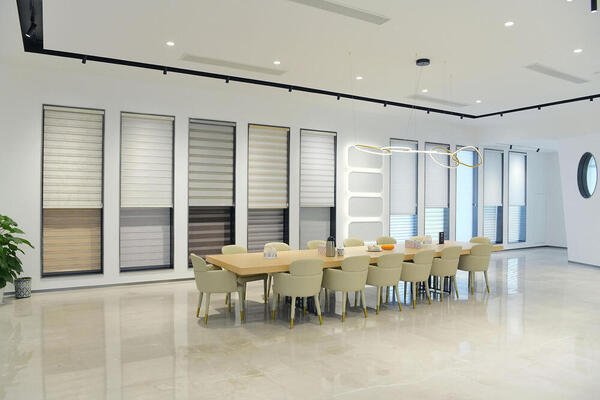
I know that for B2B buyers, choosing the right commercial roller blinds manufacturer is a foundational decision. It impacts everything from project success to product longevity and budget adherence. This guide helps me explain the essential criteria to look for, ensuring my clients make informed decisions and secure reliable partnerships.
What essential criteria should a commercial roller blinds manufacturer meet?
Are you wondering what key things a company that makes roller blinds for businesses must have? There are a few very important points to check.
A commercial roller blinds manufacturer must meet essential criteria including a proven track record, robust production capacity, stringent quality control, a wide range of product and fabric options (e.g., solar, blackout, fire-retardant), versatile motorization solutions, and strong technical and logistical support.
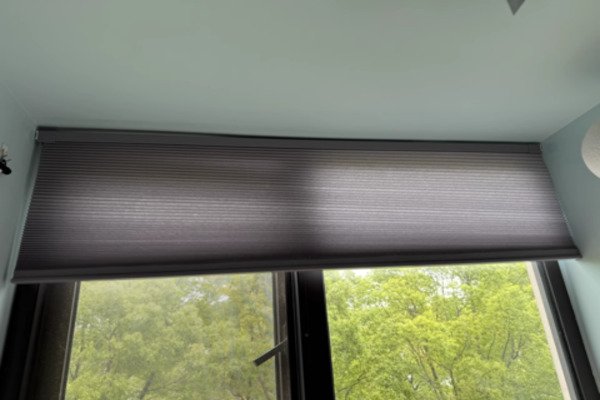
From my experience, when I evaluate a commercial roller blinds manufacturer, I look for several essential criteria. First and foremost, a proven track record is non-negotiable. I need to see a history of successful projects, reliable delivery, and positive client testimonials. This demonstrates their stability and experience in the commercial sector. Shadesmart has been doing this since 2008. Second, robust production capacity is critical for B2B projects, which often involve large volumes and tight deadlines. The manufacturer must be able to scale production efficiently without compromising quality. I assess their factory size, machinery, and daily output capabilities. Third, stringent quality control protocols are absolutely essential. This means they must have established systems for inspecting raw materials, monitoring in-process manufacturing, and conducting thorough pre-shipment inspections. This ensures consistent product standards and minimizes defects. Fourth, a wide range of product and fabric options is necessary. Commercial projects often have diverse requirements, so the manufacturer should offer various fabric types (solar, blackout, translucent), specialty treatments (fire-retardant, antimicrobial), and different blind styles. Fifth, versatile motorization solutions are a must in today's smart building landscape. They should offer a variety of motor types (AC, DC, battery), control options (remote, wall switch, app), and integration capabilities with leading building management systems. Finally, strong technical and logistical support is vital. This includes expertise in design, measurement, installation guidance, and efficient handling of international shipping and customs.
| Essential Criterion | Description | Benefit for B2B Buyers |
|---|---|---|
| Proven Track Record | History of successful commercial projects, reliable delivery, client testimonials. | Assures stability, experience, and consistent performance. |
| Robust Production Capacity | Ability to scale production for large volumes and meet deadlines. | Ensures timely project completion, avoids delays. |
| Stringent Quality Control | Established systems for material inspection, in-process checks, pre-shipment inspection. | Guarantees consistent product standards, reduces defects. |
| Wide Product/Fabric Range | Diverse options for fabric types (solar, blackout), specialty treatments, blind styles. | Meets varied project requirements, offers design flexibility. |
| Versatile Motorization Solutions | Variety of motor types, control options, smart system integration. | Adapts to modern building needs, offers automation benefits. |
| Strong Technical Support | Expertise in design, measurement, installation guidance. | Ensures correct specification, smooth installation. |
| Logistical Expertise | Efficient handling of international shipping, customs, and delivery. | Streamlines procurement, reduces import complexities. |
How can buyers assess a manufacturer's production capabilities and quality control?
Are you wondering how to truly know if a manufacturer can make good blinds consistently and check their quality well? There are specific ways to find this out.
Buyers can assess a manufacturer's production capabilities by reviewing factory audit reports, analyzing equipment lists and production line layouts, requesting sample orders, and discussing lead times for large volumes. Quality control is assessed by examining QC protocols, reviewing defect rates, requesting certifications (ISO 9001), and verifying adherence to industry standards.
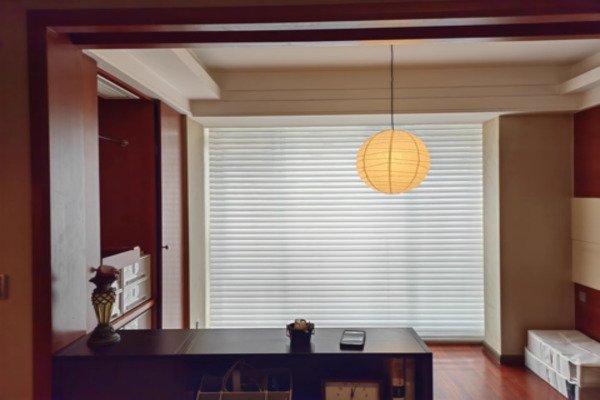
I know that assessing a manufacturer's production capabilities and quality control is critical, and it goes beyond just asking questions. First, to gauge production capabilities, I always recommend reviewing factory audit reports. This gives an independent view of their facility, equipment, and processes. I also look at their equipment list and production line layout; modern, well-maintained machinery indicates higher efficiency and precision. Requesting a sample order is a practical step; it lets me evaluate the actual product quality, packaging, and even their communication responsiveness. For Shadesmart, we are confident in our samples. I also discuss their typical lead times for various order sizes, especially large volumes, to ensure they can meet project deadlines. For a real sense, a factory visit (either in person or through a trusted third party) provides invaluable insight into their operational scale and organization. Second, for quality control, I delve into their specific QC protocols. How do they inspect raw materials? What checks happen during each stage of production? What is their final inspection process? I ask for data on their defect rates and how they handle non-conforming products. Reviewing relevant certifications like ISO 9001 demonstrates their commitment to quality management systems. I also confirm their adherence to industry standards, such as child safety regulations, fire retardancy (NFPA 701), and energy performance ratings, which confirm their products meet market requirements.
| Assessment Area | Method of Assessment | Indication of Manufacturer Strength |
|---|---|---|
| Production Capability | Factory audit reports, equipment lists, production line analysis. | Modern machinery, efficient layout, robust infrastructure. |
| Volume Handling | Discussing lead times for various order sizes, inquiring about scalability. | Ability to meet large demands, flexible production. |
| Sample Quality | Requesting and evaluating sample products, packaging, and documentation. | Attention to detail, commitment to product excellence. |
| QC Protocols | Examining raw material inspection, in-process checks, final inspection processes. | Systematic approach to quality throughout production. |
| Defect Management | Reviewing defect rates, non-conforming product handling procedures. | Proactive problem-solving, continuous improvement. |
| Certifications | Verifying ISO 9001, CE, TUV, and relevant product certifications. | Adherence to international quality and safety standards. |
| Industry Standards Adherence | Confirming compliance with child safety, fire retardancy (NFPA 701), energy ratings. | Products meet regulatory and performance expectations. |
| Workplace Environment | Observing cleanliness, organization, worker training (via audit/visit). | Reflects overall management quality and product care. |
What role do customization and comprehensive support play in the selection process?
Are you wondering why it is important for a manufacturer to offer custom options and good help when you are choosing them? These two things are very important for your project.
Customization allows buyers to meet specific project demands for design and function, making it crucial for unique commercial spaces. Comprehensive support, encompassing consultation, technical design, logistics, and after-sales service, streamlines the entire procurement process, reduces risks, and ensures long-term product satisfaction.
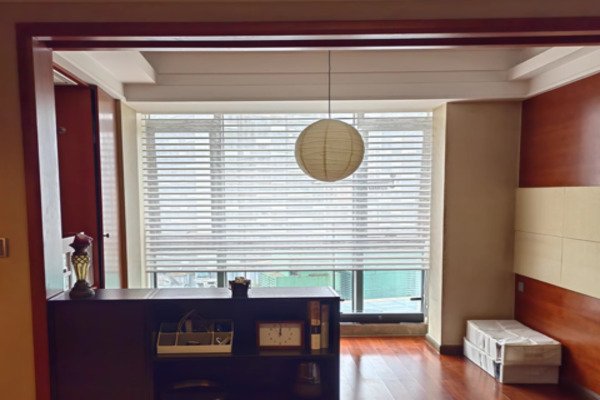
I know that for B2B buyers, customization and comprehensive support are not just added bonuses; they are integral to a successful selection process. First, customization is absolutely vital for commercial projects because every space is unique. My clients often need specific fabric colors to match branding, specialized materials for performance (like acoustics or extreme UV protection), precise sizing for unusual windows, or integration with a particular building management system. A manufacturer who can offer bespoke solutions, rather than just off-the-shelf products, allows for design innovation and ensures the roller blinds flawlessly meet the project's exact aesthetic and functional requirements. Without this flexibility, my clients might have to compromise on their vision or incur additional costs adapting standard products. Shadesmart excels in offering flexible customization. Second, comprehensive support throughout the entire project lifecycle adds immense value. This starts with pre-sales consultation, where the manufacturer's expertise helps in material selection, motor specification, and control system design. Technical design support often includes detailed drawings and CAD files for seamless integration. During the order phase, efficient logistics management (including international shipping, customs, and delivery) is crucial for smooth execution. Finally, robust after-sales service, including warranty support and troubleshooting, provides peace of mind and ensures long-term product satisfaction. A manufacturer who provides this end-to-end support acts as a true partner, streamlining the procurement process and mitigating potential risks.
| Role Aspect | Description | Benefit to B2B Buyers in Selection |
|---|---|---|
| Bespoke Customization | Ability to tailor fabric, color, dimensions, motor type, and control integration. | Meets unique project criteria, fosters design innovation. |
| Performance Specificity | Offering fabrics with specific properties (fire-rated, acoustic, UV). | Ensures compliance, optimizes functionality for specific environments. |
| Technical Design Support | Assistance with specifications, CAD drawings, integration plans. | Guarantees precise fit and function, avoids costly errors. |
| Logistics Management | Handling international shipping, customs, and on-time delivery. | Streamlines import process, reduces administrative burden and delays. |
| Comprehensive After-Sales Support | Warranty, troubleshooting, parts availability, maintenance guidance. | Ensures long-term reliability, protects investment, provides peace of mind. |
| Project Management Expertise | Dedicated contacts guiding the project from consultation to completion. | Efficient execution, clear communication, timely problem resolution. |
| Value Engineering Options | Advising on cost-effective alternatives without compromising core needs. | Optimizes budget, achieves desired outcomes with best value. |
Why is Shadesmart a trusted partner for commercial roller blinds projects?
Are you wondering why Shadesmart is a reliable choice for your business's roller blind needs? We have distinct strengths that set us apart.
Shadesmart is a trusted partner because of our deep industry expertise since 2008, state-of-the-art manufacturing, stringent multi-stage quality control, extensive customization capabilities, competitive wholesale pricing, and dedicated end-to-end project management, ensuring precision, reliability, and long-term value for B2B clients.
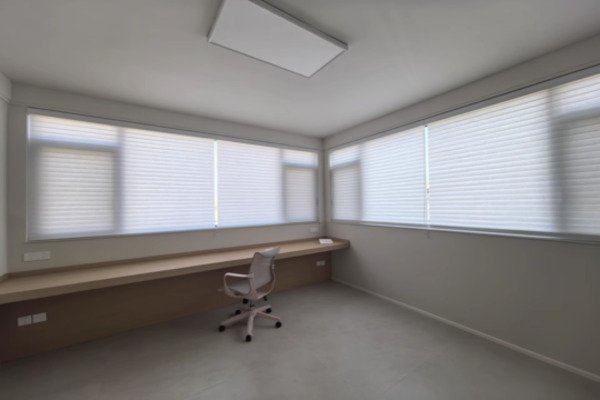
I know that building trust as a partner for commercial roller blinds projects is fundamental for Shadesmart, and we achieve this through several key differentiators. First, our deep industry expertise, honed since 2008, means we understand the nuances of commercial requirements, regulations, and design trends. We are not just suppliers; we are consultants. Second, we leverage state-of-the-art manufacturing capabilities within our extensive network of factory partners. This ensures that every product benefits from advanced technology, precision engineering, and scalable production to handle any project size. Third, we implement stringent multi-stage quality control, which is the cornerstone of our reliability. From raw material inspection to final pre-shipment checks, our dedicated QC teams ensure consistent, superior product standards. Fourth, our extensive customization capabilities are unmatched. Whether it is specific fabric performance, unique colors, precise dimensions, or seamless integration with complex building management systems, Shadesmart delivers bespoke solutions that perfectly align with client visions and project demands. Fifth, as a prominent B2B provider, we offer competitive wholesale pricing. Our volume and long-term factory relationships allow us to provide significant cost efficiencies to our partners, enhancing their project profitability. Finally, our dedicated, end-to-end project management sets us apart. We provide comprehensive support from initial ideation, technical design, robust logistics, and reliable after-sales service, streamlining the entire procurement process and ensuring a seamless, worry-free experience for our B2B clients from start to finish.
| Shadesmart Differentiator | Description | Direct Benefit to Our Partners |
|---|---|---|
| Deep Industry Expertise | Over 15 years in smart shading, understanding commercial needs and trends. | Expert guidance, reliable advice, informed decision-making. |
| State-of-the-Art Manufacturing | Access to advanced machinery and efficient production lines. | High precision, consistent quality, scalable for large orders. |
| Stringent Multi-Stage QC | Raw material, in-process, and pre-shipment inspections. | Guarantees superior product quality, minimizes defects. |
| Extensive Customization | Tailored fabric, color, size, motor, and control integration options. | Meets unique project requirements, fosters design innovation. |
| Competitive Wholesale Pricing | Leveraging bulk orders and factory partnerships for cost efficiency. | Improved project margins, cost-effective solutions. |
| Dedicated Project Management | End-to-end support: consultation, technical design, logistics, after-sales. | Streamlined process, reduced administrative burden, on-time delivery. |
| Reliability & Longevity | Focus on durable materials and robust mechanisms for long product lifespan. | Reduced maintenance, strong ROI, peace of mind. |
| Integration Capabilities | Seamless compatibility with leading smart home and BMS platforms. | Advanced automation, energy efficiency, modern building appeal. |
Conclusion
Choosing a commercial roller blinds manufacturer requires checking their track record, production, and quality control. Customization and comprehensive support are also very important. Shadesmart is a trusted partner, offering expertise, advanced manufacturing, strong QC, deep customization, competitive pricing, and complete project management for reliable, valued solutions.
